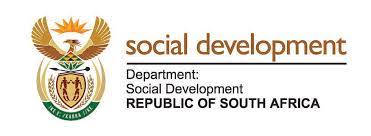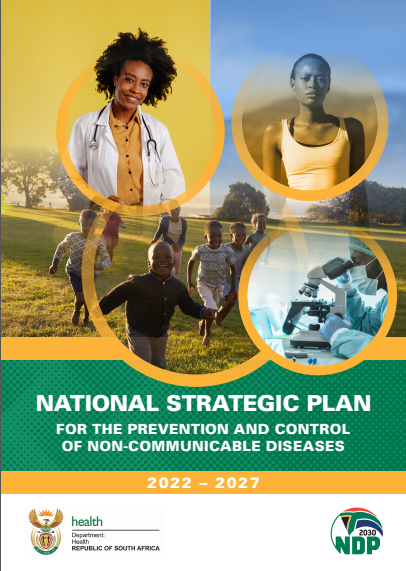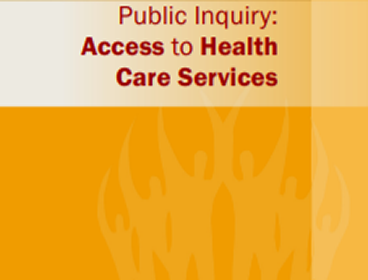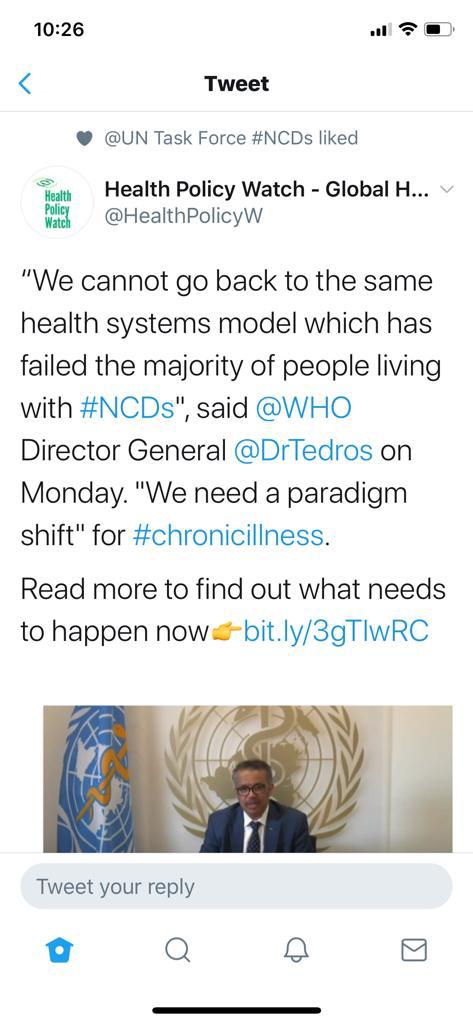 Download draft policy
Download draft policy
Comment by 10 December 2023
Policy objectives :
- to embrace a balanced, integrated and evidence-based approach to domesticsubstance use, abuse and dependency (substance use disorders);
- to invest in building safe communities through appropriate evidence-based prevention and treatment strategies; and
- to devise SUD impact minimisation strategies
231110PreventionofandTreatmentforSubstanceUseDisordersPolicy
The SANCDA’s founding partners ask the Minister of Health, Dr Joe Phaahla, to work together to solve the NCD epidemic sent 19 April 2023. Still awaiting a response. From 2013 until today, the SANCDA has never received a written response from its political leadership or executive officials.
Summary of contents
- Annexure A: SANCDA members, allies, and partners.
- Annexure B: List of policy requiring coordination and update by date and government Department
- Annexure C: Contextualisaton of NDOH NCDS+ subprogramme allocations (1010-2026) with the Health Promotion Leavy and & HIV NPOs
SANCDA Letter to Minister Apr 2023 and annexures A B C

The SANCDA+ invites you to participate virtually in the NDoH and WHO Technical meeting for the NCDs+ NSP provincial rollout. June 30 all day and July 1 till lunchtime
Register for both days via Zoom Link number of participants limited to 300
Livestreaming on another platform is also to be arranged
When: Jun 30, 2022 08:00 Johannesburg
Register in advance for this meeting:
https://us02web.zoom.us/meeting/register/tZckdu6prTwtHtCESam-n2gs0fay2U6ZsR6s
After registering, you will receive a confirmation email containing information about joining the meeting. The message may note it is a meeting with the Presidency but it is an error we cant correct. It is for the NDOH meeting.
Link to the NDoH invitation here
Link to the draft programme here
Link to the latest corrected 3rd NCDs+ NSP here

Early in the COVID-19 pandemic WHO’s @DrTedr os highlighted the problems of access to health services by millions of people living with NCDs+ in his tweet. His tweet certainly mirrors what the SA NCDs Alliance and our allies have been saying since 2007 when the SA Human Rights Commission (SAHRC) held its first public hearings into the right access to health services.
os highlighted the problems of access to health services by millions of people living with NCDs+ in his tweet. His tweet certainly mirrors what the SA NCDs Alliance and our allies have been saying since 2007 when the SA Human Rights Commission (SAHRC) held its first public hearings into the right access to health services.
COVID-19 changed the parameters of vulnerability to include NCDs+, mental health, and reemphasised disability in all its shapes and forms.
SAHRC report 2007
15 years ago the primary focus was understandably on access to HIV/AIDS and TB services. It was the height of the communicable disease epidemic. And amidst our homegrown “AIDS-denialism”. It was also the midpoint of the Millenium Development Goals (MDGs) where vast amounts of funding were channelled into communicable diseases and maternal-child services. That pattern of expenditure and funding remains in place today.
Executive summary
The report’s executive summary is salutary: it fits today’s health service access issues in the COVID-19 pandemic. Just substitute NCDs+ for communicable diseases. And, we have a similar complaint today.
The report’s opening quote is ironically, but not surprisingly, from The AIDS Law Project, the early version of Section 27:
“We don’t yet have a definition of essential health services. This means we don’t have a base line for the right to health and it is impossible to cost the health service and thereby determine objectively what can be
afforded.”
We still don’t have the definition. But HIV unlike NCDs+ is a National Development Plan priority. As for the rest of the conclusions, they mostly are unmet PLWNCDs+ The main change to health services is that HIV/TB services dominate primary health care. We beg for evidence-based inclusion of NCDs + throughout the life-course. And, more not just a tack on to HIV, TB and STI services.
That is why we fight on. Read the SAHRC 2007 report on access to health services SAHRC 2007Health Report




